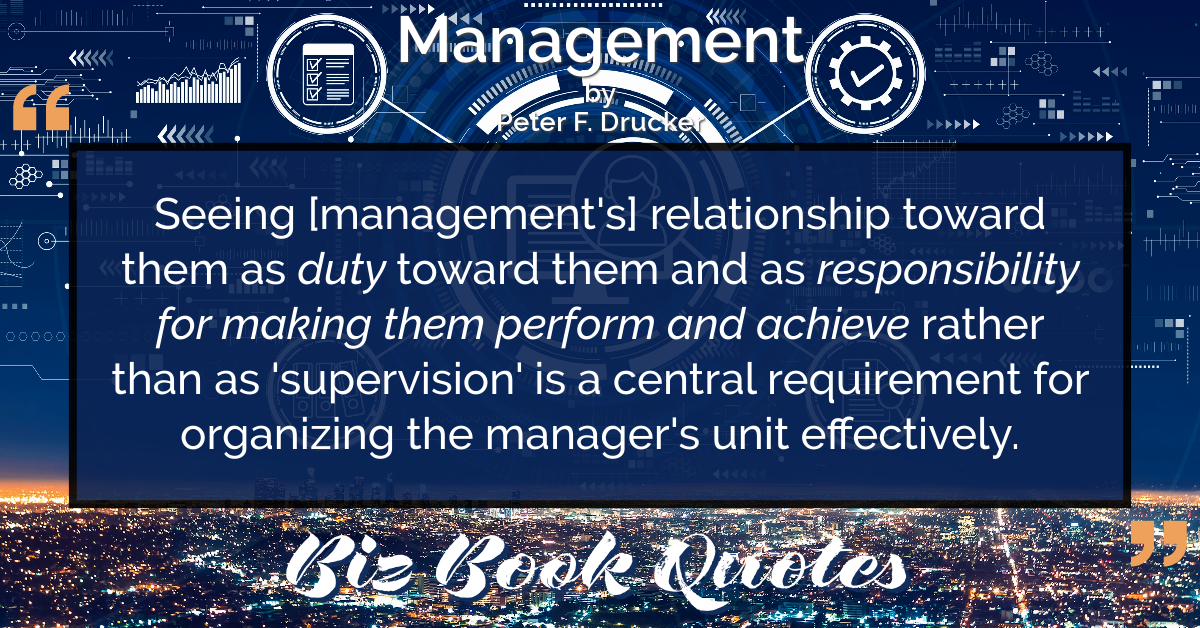|

|
Management:
…many managers, no matter what the organization chart says, have more than one boss.
|
245 |
|

|
Management:
…a job that is all ‘relationships’ and no ‘work’ is not a job at all.
|
245 |
|

|
Management:
…the common weakness of many organizations is, by and large, the lack of adequate concern for, and adequate work on, sideways relationships.
|
245 |
|

|
Management:
Seeing [management’s] relationship toward them as duty toward them and as responsibility for making them perform and achieve rather than as ‘supervision’ is a central requirement for organizing the manager’s unit effectively.
|
248 |
|

|
Management:
The demand for executives is steadily growing. A developed society increasingly replaces manual skill with theoretical knowledge and the ability to organize and to lead – in short, with managerial ability.
|
250 |
|

|
Management:
…managers are made not born. There has to be systematic work on the supply, the development, and the skills of tomorrow’s management. It cannot be left to luck or chance.
|
251 |
|

|
Management:
The attempt to find ‘potential’ is altogether futile. It is less likely to succeed than simply choosing every fifth person. Performance is what counts…
|
253 |
|

|
Management:
An employer has no business with a subordinate’s personality. Employment is a specific contract calling for specific performance, and for nothing else.
|
253 |
|

|
Management:
The market for jobs and careers has become a genuine mass market. Every organization, therefore, needs to design a ‘career product’ that will attract and satisfy the career customer of tomorrow.
|
254 |
|

|
Management:
No one can motivate a person toward self-development. Motivation must come from within.
|
255 |











